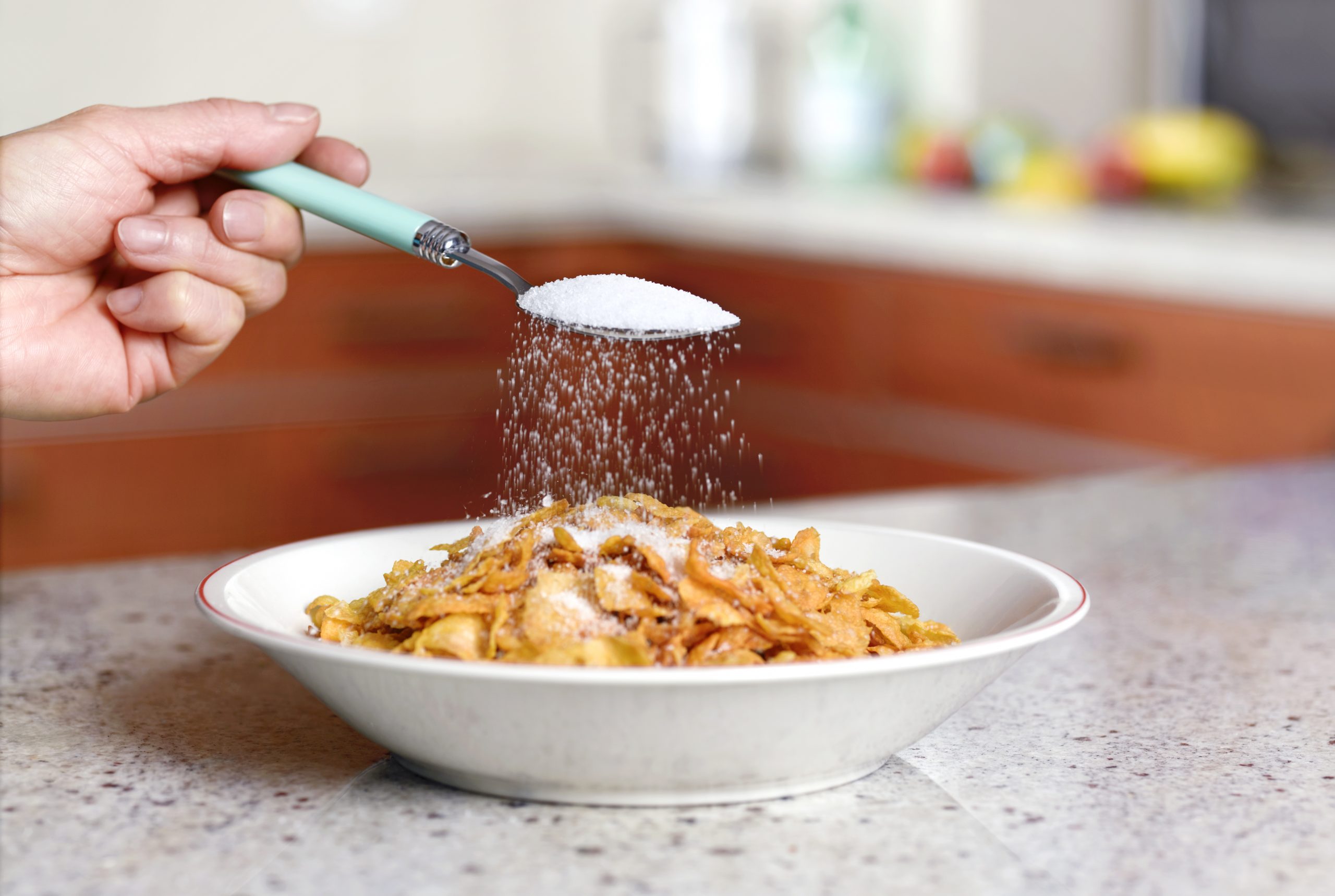What are 'refined' carbs - and are they bad for you?
Nutritionist explains how refined carbs such as sugars and starchy carbohydrates impact our health


You might have previously heard the words ‘refined carbs’ and been unsure as to what exactly they are. Is this sugar? White bread or brown rice? We've spoken to a nutritionist to get a better understanding.
Put simply, refined carbs, also known as simple carbohydrates, include sugars and refined grains, which have had much of their fibre and nutrients removed. Think ‘white’ items like white bread, white rice, white flour, pastries, sugary foods and many breakfast cereals. They’re often described as ‘bad carbs’, however they CAN still play a part in our diets.
Nutritionist Rob Hobson explains that carbs (in general) are one of the three macronutrients that provide us with energy along with proteins and fats. ‘Carbohydrates provide the body with four calories per gram and these are all converted into a simple sugar called glucose; the body’s preferred source of energy.’
And whilst carbs have become somewhat of a ‘villain’, these carbohydrate rich foods such as pasta, bread and rice are essential to many diets around the world as they offer an ‘economical way to prepare a nutritious meal’.
‘Humans have been eating carbohydrate foods for a very long time and many of the healthiest populations such as the Okinawans and other Asian communities regularly include them with most meals,’ says Rob.
However, he explains that closer to home, the rise in obesity has often come hand In hand with the overconsumption of food and many of these foods include sugar and highly refined grains.
Refined carbs include sugars and starchy carbohydrates
Let’s start with sugars, which Rob explains are either found intrinsically; naturally in fruits, vegetables and milk or extrinsically, which includes table sugar, fruit juice and natural sweeteners such as honey, agave and maple syrup.
Parenting advice, hot topics, best buys and family finance tips delivered straight to your inbox.
He adds that extrinsic sugars are broken down very quickly by the body due to the lack of fibre. This fibre however is still retained in fruit. So although fruit is a sugary carb, it’s a good’en!
Starchy carbohydrates include foods such as bread, rice, potatoes and pasta. ‘The more refined starchy foods such as white pasta and rice have a much lower amount of fibre than wholegrain varieties (such as brown rice and oats) so are also broken down quickly in the body’, says Rob.
‘Fibre helps to slow the breakdown of carbohydrate foods and has less of an effect on blood glucose levels,’ explains Rob. He adds: ‘High fibre foods also helps to maintain fullness and has been shown to have multiple benefits to health including a reduction in the risk of heart disease and bowel cancer.’
In the UK we’re advised to eat 30g of fibre every day. Good sources of fibre include wholegrains (bread, oats) bread, pulses (beans and lentils), quinoa, nuts and vegetables.

Rob Hobson is an award-winning registered nutritionist, with more than 15 years experience. Accredited by the AFN and SENR, he also has degrees in nutrition, public health nutrition and sports nutrition. Rob is a published author of three successful books, Unprocess Your Life, The Detox Kitchen Bible and The Art of Sleeping. He has acted as Head of Nutrition at Healthspan since 2013.
What happens when you eat refined carbs?
‘When you eat carbohydrate foods they are broken down into glucose. At this point the body releases insulin which signals to the liver, muscle and fat cells to take up glucose to be used as a source of energy,’ says Rob who goes on to explain that whilst some glucose is stored in the liver and muscles as glycogen, this is limited, meaning any excess is stored as fat.
In today’s world, carbs are cheap and readily available so many of us rely on them when choosing something to eat. ‘This doesn’t mean that carbs necessarily make you fat as any food eaten to excess can lead you to put on weight but these foods are much easier to overeat and those that are highly refined do not keep you full for long before you start to feel hungry again. In some cases, this can lead to weight gain,’ says Rob. So, opt for the non-refined carbs to keep fuller for longer.
The link between sugar and diabetes
It’s unlikely to be the only reason as to why Type 2 diabetes develops, however Rob tells us that sugar plays in a role in that eating it in excess can lead to weight gain, a risk factor for type 2 diabetes. ‘It’s very easy to overeat sugary foods and drinks but it’s also worth adding that fatty foods and drinks are just to blame for the nations expanding waistlines,’ he reveals.
Should you reduce your intake of refined carbs?
Rob explains that you can easily live without sugar in the diet although people find it hard to give up sugar completely. To eliminate all carbohydrates would be tricky and not really necessary. There are many useful nutrients in carbohydrate foods including calcium, iron, B vitamins, zinc and fibre.’
He also adds that ketogenic diets (low carb and high fat) have become a popular ways to lose weight. ‘In the short term they appear to be safe although the side-effects can be a bit nasty and often the weight creeps back on when people revert back to eating normally again.’
Rob’s final word of advice on carbs? ‘Ditch the sugar and stick to sensible servings of ‘smart’ carbs which are unprocessed and high in fibre.’

Freelance writer Lucy Gornall is the former health and fitness editor for various women’s magazines including Woman&Home Feel Good You. She has previously written for titles including Now, Look and Cosmopolitan, Woman, Woman's Own, Woman's Weekly and Chat. She lives and breathes all things fitness.